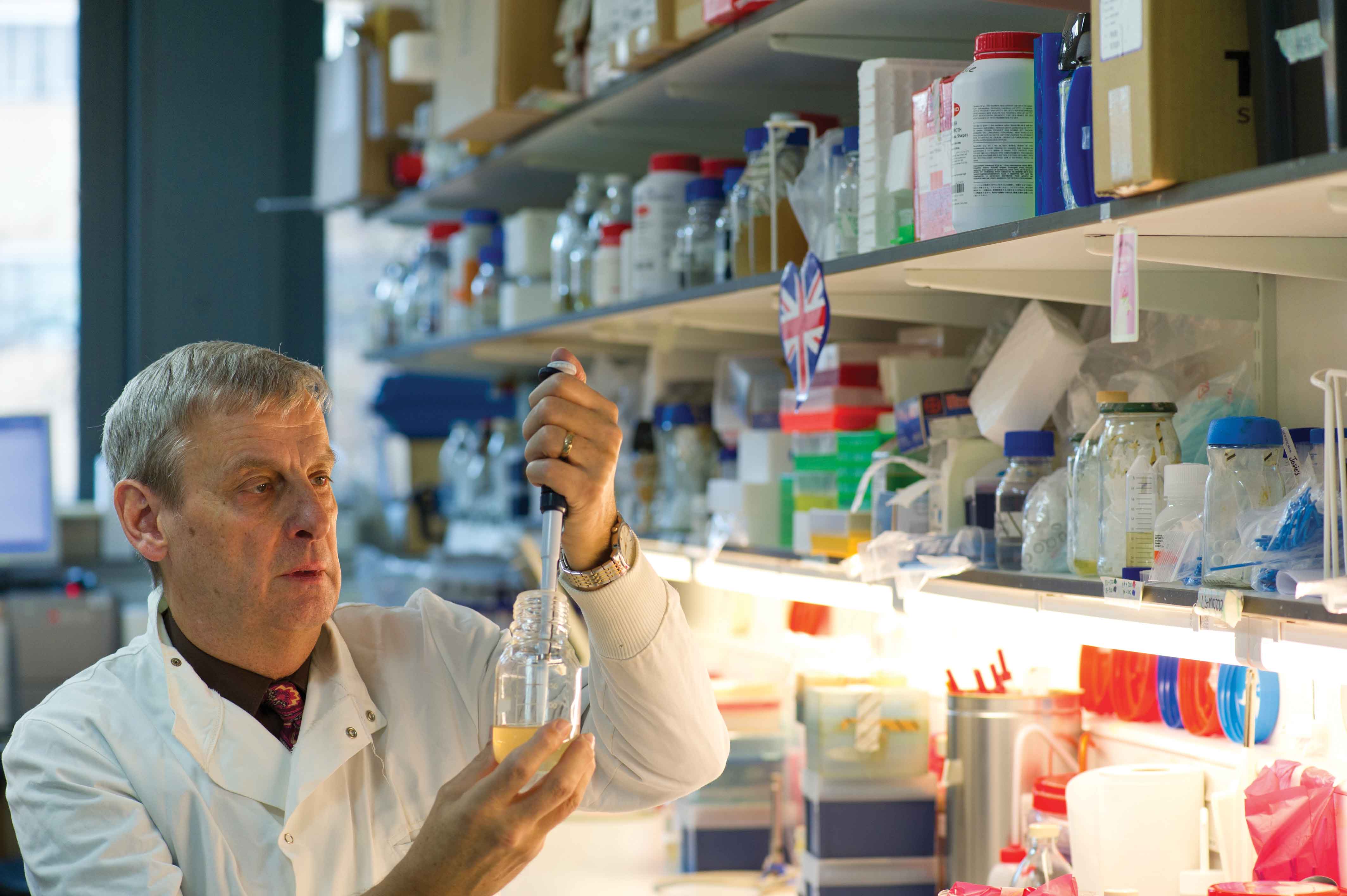
‘Superbug’ Professor retires
January 30th, 2013
It’s 1986 and academics at the University of East Anglia are discussing the Chernobyl nuclear disaster. Amid reports that radiation from the Ukraine could reach the UK, one microbiologist warns his colleagues: it’s not radiation exposure we should be most worried about — but the rise of antibiotic-resistant bacteria.
Almost 30 years later and the prescience of Professor Richard James can hardly be underestimated. Heading up The University of Nottingham’s Centre for Healthcare Acquired Infections (CHAI), Professor James has dedicated his 12 years here to the study and fight against so-called superbugs such as Methicillin Resistant Staphyloccocus aureus (MRSA) and Clostridium difficile (C.diff), which have killed thousands of hospital patients and have now begun to colonise many of our communities.
As he reaches retirement, Professor James can look back on a career that has courted controversy over his predictions of superbug pandemics yet has seen many of the measures he championed for tackling infections adopted in our hospitals.
Professor James began his career during the mid-70s following discoveries that offered the tantalising prospect of antibiotics vanquishing human infection.
But just 10 years later, as Professor James joined UEA to establish a course in medical microbiology, it was becoming clear such complacency was dangerous. Some bacteria had developed resistance to the drugs used to treat them.
Professor James came to Nottingham in 2000 — at the height of the MRSA epidemic in hospitals — and with colleagues began to plan a research centre dedicated to eradicating superbugs.
CHAI was launched in February 2007 amid a flurry of media interest. Its patron was actor Leslie Ash, who contracted a strain of Methicillin Sensitive Staphyloccocus aureus (MSSA) MRSA in 2004.
His outspokenness on hospital infections ruffled feathers; on the day that CHAI launched the Chief Nursing Officer at the Department of Health publicly condemned Professor James’ comments.
Professor James said: “To be accused of being a sensationalist and scaremonger on the launch day was interesting — my first thought was don’t shoot the messenger.
“Tony Blair’s government was very sensitive about the issue and didn’t want people speaking honestly about how serious the situation with infections really was in our hospitals and was desperate to avoid bad news because a General Election was due to take place in the summer of 2007.
“Interestingly, MRSA screening for all hospital admissions was announced shortly before the announcement that there wasn’t going to be an election and I am certain that wasn’t a coincidence.”
In 2008, Professor James was awarded the Society for Applied Microbiology Communications award for raising the profile of the problem of HAIs and antibiotic resistance.
He also wrote an article — Battling the Bug — for the House of Commons magazine House, in which he outlined an strategy to tackle hospital-acquired infections, which included screening of all hospital admissions for MRSA, monitoring infection rates in individual wards, the introduction of effective measures to increase staff hand hygiene and improved staff training and involvement on infection control. Almost all of these recommendations have since been put into place.
Since 2000, the rates of MRSA and C.diff in our hospitals have been steadily falling. However, Professor James warns that a biological apocalypse has yet to be avoided.
“We are still a long way from improving the situation,” he says. “We may have controlled the spread of MRSA and C.diff to a certain extent but there are other pathogens, other antibiotic-resistant bacteria cropping up all the time, like community-acquired MRSA and bacteria carrying a resistance mechanism called NDM1 found initially in India and then in the UK in 2010 which effectively are resistant to all antibiotics. The inexorable increase in antibiotic resistance among pathogens has not been solved.”
Research into antibiotic resistant microbes will continue at CHAI under the guidance of a new director, yet to be announced.
Although retiring from Nottingham, where he cites serving as Head of School for six years and Director of the Centre for Biomolecular Sciences as career highlights, Professor James may return to CHAI in a part-time capacity for a short time next year.
Professor James was given a send-off by colleagues in the Centre for Biomolecular Sciences at the Orchard Hotel on University Park in December, and plans an around-the-world trip with his wife Lynne next month.
Tags: C.diff, Centre for Biomolecular Sciences, Centre for Healthcare Acquired Infections, CHAI, Leslie Ash, MRSA, Professor Richard James
Leave a Reply
Other Research

Manuscripts and Special Collections awarded £1.1m grant
The funding has been awarded by the Research England Museums, Galleries and Collections Fund The £1.1m […]

Artificial intelligence – an update on the university’s approach
Since our last update on the university’s response to the rapidly evolving emergence of artificial intelligence […]

